THE ADVENTURES OF BARON MUNCHAUSEN (1988)
An account of Baron Munchausen's supposed travels and fantastical experiences across late-18th-century Europe with his band of misfits.
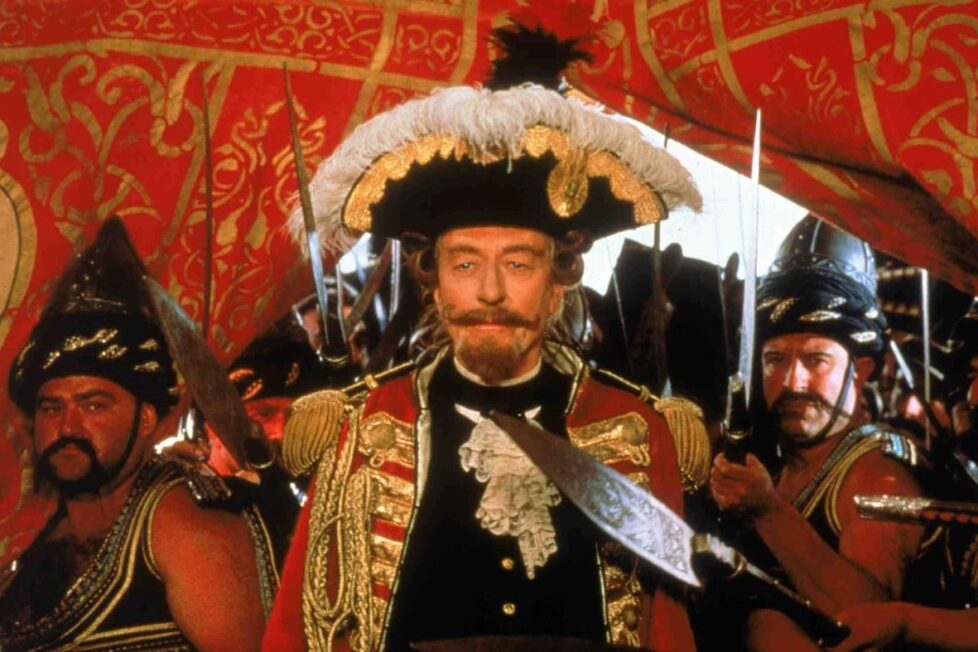
An account of Baron Munchausen's supposed travels and fantastical experiences across late-18th-century Europe with his band of misfits.


The real Baron Munchausen was born in 1720 and fought the Turkish Ottomans for the Duke of Brunswick. Thereafter, following his retirement, Munchausen became renowned for spinning elaborate and fantastical yarns about his wartime exploits, before eventually being immortalised as a literary figure when Rudolf Erich Raspe published his fantastical 1785 novel Baron Munchausen’s Narrative of His Marvellous Travels and Campaigns in Russia. Munchausen thus became synonymous with exaggerated lies and inspired many filmmakers who likely grew up reading Raspe’s stories…
Georges Méliès first paid tribute to the character with The Hallucinations of Baron Munchausen (1911), followed by Josef von Báky’s German production Münchhausen (1943), and finally Karel Zeman’s fantasy adventure The Fabulous Baron Munchausen (1962). It was the latter that prompted Terry Gilliam to track down Raspe’s novel and, after completing work on Time Bandits (1981) and Brazil (1985), Gilliam and co-writer Charles McKeown (The Imaginarium of Doctor Parnassus) embarked upon what would be their most audacious project to date. Combining the right amount of ridiculousness with a popular literary text, The Adventures of Baron Munchausen questions whether truth matters more than imagination.
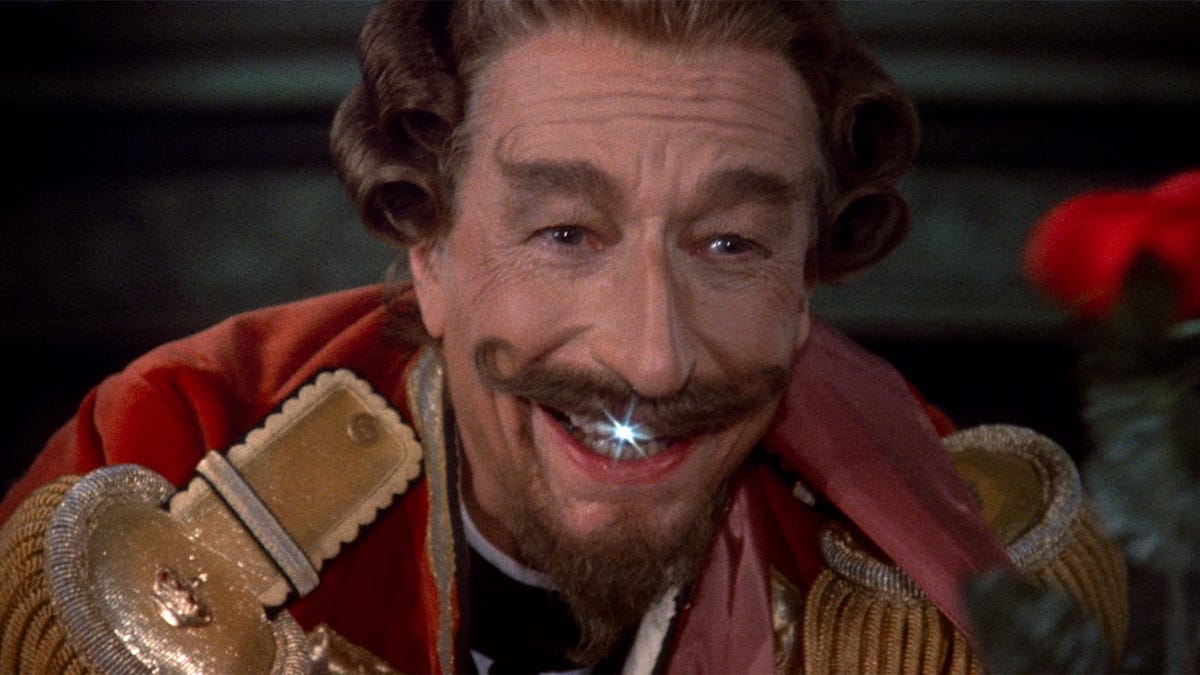
Set during the late-18th-century, the denizens of an unnamed European city are fending off a military invasion by the Ottoman army, beleaguered from the unending assault and the increasing lack of supplies. Amid the battle’s gunfire, the local theatre company puts on a stage version of The Adventures of Baron Munchausen. Amongst the restless audience is Horatio Jackson (Jonathan Pryce), an elected official who’s there to determine if the theatre deserves a place in his modern city of rationality and logic. Mid-scene, the company is joined by the real Baron Munchausen (John Neville) as he declares the play misrepresents his actual experiences. Relating his version of events, Munchausen feels somewhat responsible for the ongoing situation and vows to end the conflict; and so, accompanied by young Sally Salt (Sarah Polley), the Baron travels to the ends of the Earth and beyond to reclaim his long-lost comrades.
The Adventures of Baron Munchausen is wildly imaginative and the extraordinary cast provides colourful performances. John Neville (The Fifth Element) grounds the story with elegant dignity and roguish charm as Baron Munchausen. Although practically unknown to filmgoers at the time, Neville delivers a wonderful mix of theatricality and poignancy to one of literature’s most absurd creations. The twinkle in his eye suggests he’s oddly credible even when one can’t believe a thing he’s saying! Sarah Polley (eXistenZ) also delivers an incredible performance, providing the audience’s perspective as Sally, the daughter of a theatre impresario, who experiences real suffering in a world in which she’s often left to fend for herself. She’s pragmatic yet full of wonder and keeps the Baron grounded while also inspiring him to fresh heights of whimsy. Polley never succumbs to the cliches of a courageous young heroine and proves to be a marvellous foil for the Baron.
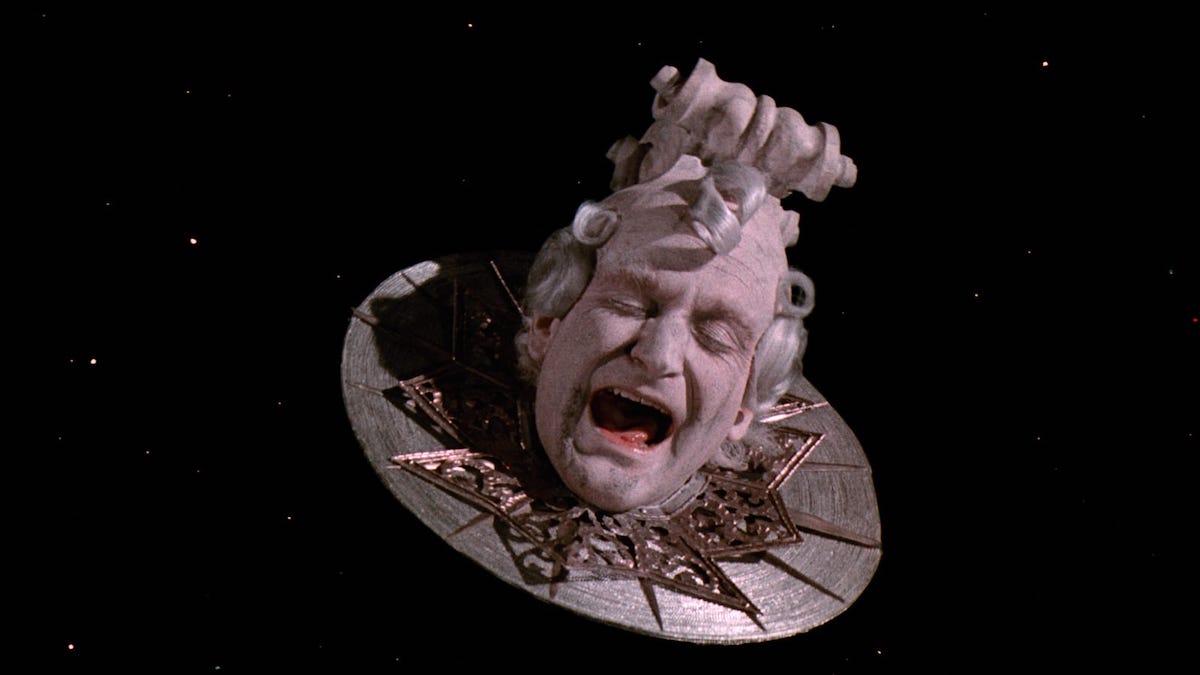
The remaining supporting cast brings lively imagination to the adventure. Jonathan Pryce (The Man Who Killed Don Quixote) is dramatically nefarious as civil servant Horatio Jackson. Dedicated to the cause of reason and normalcy, he wants his citizens to accept the barbarity of the world and to know their place in it. There’s a hilarious moment when he orders the execution of a heroic soldier because his improbable feats of bravery would be “demoralizing” to average citizens. Another highlight is Oliver Reed (Gladiator) as the Roman deity Vulcan; forever at war with his disgruntled workers, he delivers his lines with perfect comic timing. Reed actually caused behind-the-scenes problems, however, as he was inebriated throughout most of the shoot and yet somehow still manages to showcase a vulnerability in certain scenes. Rounding out the cast is several familiar faces including Eric Idle (Monty Python’s Meaning of Life), Jack Purvis (Time Bandits), and Winston Dennis (Brazil).
Perhaps the most endearing element about Gilliam’s early work is his longstanding romanticism for imagination. The writer-director understands that without fantasy and escapism, the world would be a monotonous place. Co-written with Charles McKeown, The Adventures of Baron Munchausen is the final chapter in what the director refers to as the ‘Trilogy of Imagination.’. Much like the previous entries Time Bandits and Brazil, it questions whether the death of humanity is the total abdication of the imagination. The opening sequence establishes we’re in the ‘Age of Reason’ and that any form of creativity is the downfall of humanity. When Munchausen and his comrades face being swallowed up by bureaucracy, they become withered and await Death to claim their souls. However, once they embark on their adventures they regain their youthful abilities. Gilliam suggests that our imagination and sense of adventure are precious and they actually extend and fulfil one’s life.
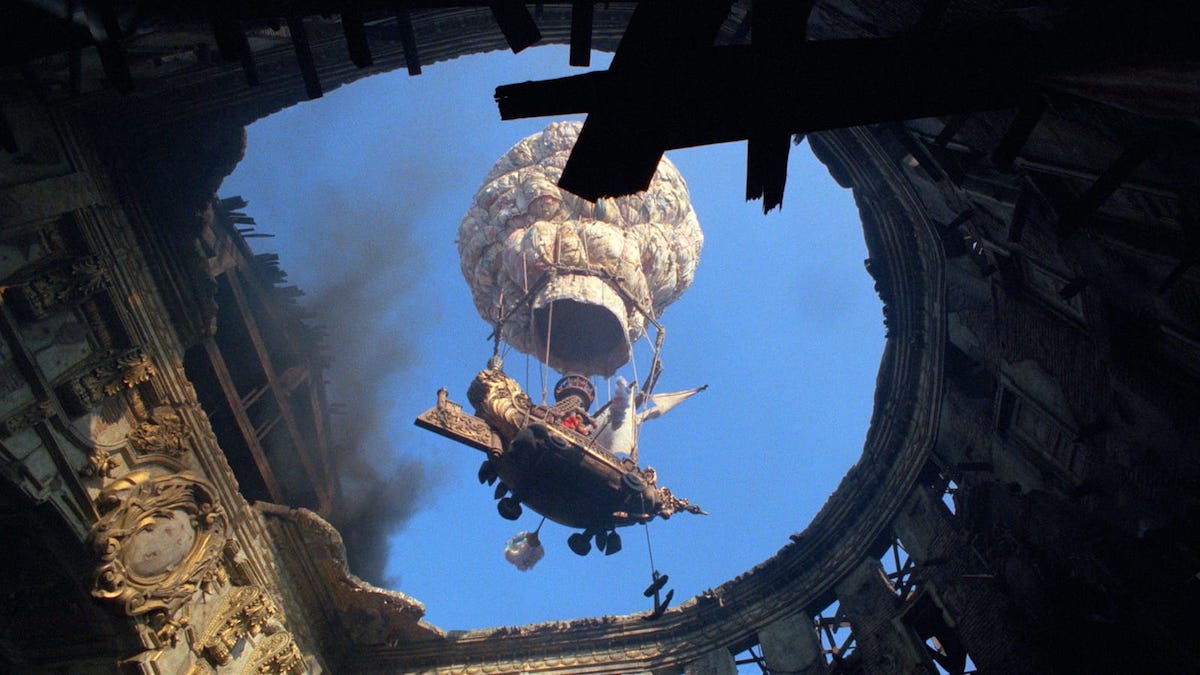
Gilliam’s a bold fantasist whose extravagant visual sensibilities have left an unmistakable imprint on his work. As demonstrated with Jabberwocky (1977) and Time Bandits, he has a natural ability to make the audience suspend their disbelief. The Adventures of Baron Munchausen dazzles with an incredible selection of provocative and imaginative moments that feel like they’ve been lifted straight from a tattered storybook. Dante Ferretti’s (Casino) exuberant production design is filled with elaborate sets, ornamented with colours and facets that ignite the imagination; while Richard Conway (Little Shop of Horror) and Kent Houston’s (Twelve Monkeys) SFX are a combination of intricate miniatures, optical tricks, and matte paintings. Both Gilliam and Faretti employ old-fashioned technical wizardry to breathe gorgeous life into Sandro Botticelli’s famous Renaissance painting. The chamber of fountains is decorated with majestic waterfalls and fluttering cherubs as the Baron and Venus (Uma Thurman) waltz through the air. Unsurprisingly, the laborious effects and lavish production design resulted in a notoriously troubled production.
The real Baron was a raconteur of extraordinary tales and considered a fantasist because his reported exploits were too whimsical to be believed. Ironically there were several gigantic myths surrounding the making of Gilliam’s grand folly too. Many articles in The Los Angeles Times went into excruciating detail about its delays and casting challenges calling it an “overbudget nightmare”. Declaring it one of history’s greatest financial flops to date, the budget ballooned from $23M to an alleged $45M. The spectacular moon sequence in the original script was supposed to be a more gargantuan affair, featuring lavish sets and thousands of extras, but when budget constraints threatened to omit the sequence Gilliam reworked the segment to feature only two lunar residents. The inclusion of Valentina Cortese (The Possessed) alongside Robin Williams (The Birdcage) manic verbosity and physical comedy overshadow a torturous set of circumstances. Despite the stigma surrounding The Adventures of Baron Munchausen’s production, Gilliam’s chaotic brand of filmmaking triumphed through seemingly unworkable circumstances.
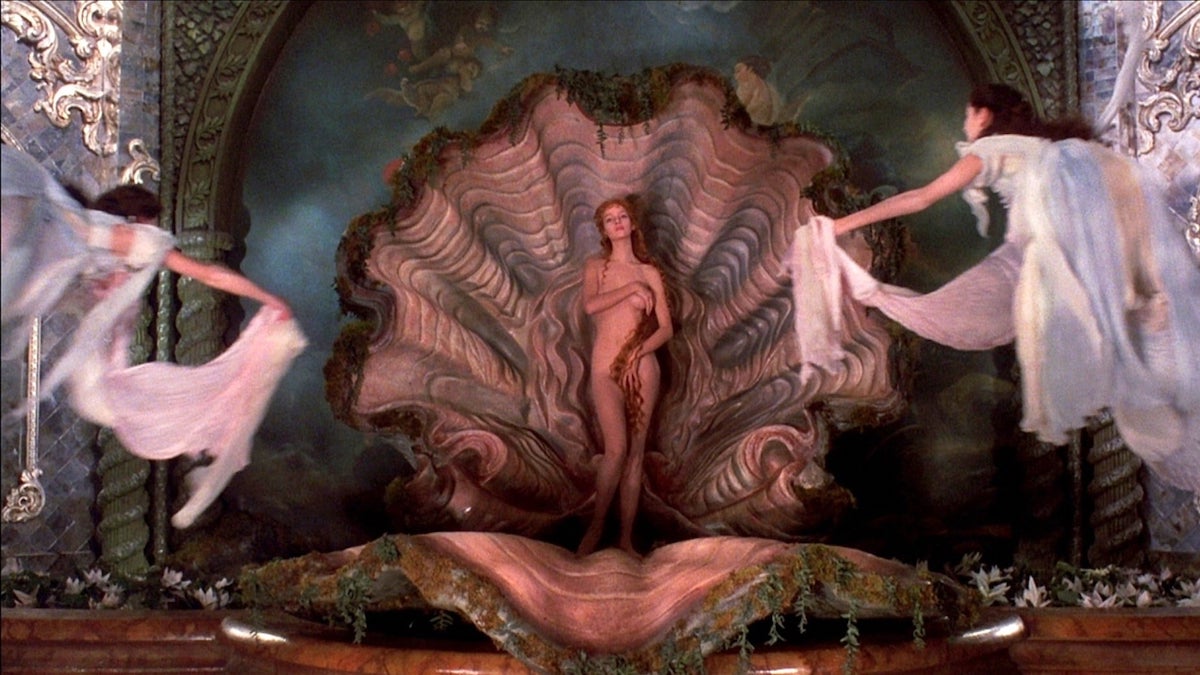
The spectacle is a considerable achievement but Gilliam’s imagination has a tendency to become long-winded. The screenplay gets lost in its own extravagant fantasies and feels like it would benefit from a tighter runtime. However, the key to enjoying The Adventures of Baron Munchausen is to embrace its absurdity and disregard for logic. Gilliam’s humour contains unmistakable traces of Pythonesque satire but the absence of the Monty Python troupe marks this out as something distinct. It blends slapstick comedy with dry irreverence, practically making almost no sense at all. The Baron’s wild adventure to reunite with his merry gang of misfits leads him through one absurd moment to the next. He not only ascends to the surface of the moon, but to the heart of a volcano, and into the stomach of a ravenous sea monster. These impossible adventures are told with an infectious buoyancy that adults and children alike can embrace. Beyond all the humour there’s a commentary on repressive political systems alongside themes of poverty and family strife, but it never forgets that it’s a whimsical comedy at heart.
Unfortunately, Columbia Pictures had no interest in promoting The Adventures of Baron Munchausen beyond the bare minimum necessary to recoup their investment. It received a smaller release than most independent productions and eventually grossed a modest $8M worldwide. However, while it wasn’t commercially successful, it did receive the recognition it deserved from critics who saw genius in Gilliam’s work. The Adventures of Baron Munchausen is a fascinating adventure that boasts brilliant production design and startling imagery. The beautiful visuals and absurdist undertones have since become staples in the filmmaker’s oeuvre. Combining his unique sense of whimsy and imaginative direction, The Adventures of Baron Munchausen comes to life in ways, Rudolf Erich Raspe would never have thought possible. Displaying a grander sense of maturity promised within Time Bandits while fuelled by the negative experience of Brazil, Gilliam demonstrates he was ready for more ambitious projects.
UK • WEST GERMANY | 1988 | 126 MINUTES | 1:85:1 | COLOUR | ENGLISH

One would have to be grumpier than Horatio Jackson to complain about this Blu-ray presentation. Criterion presents The Adventures of Baron Munchausen with a remarkable 1080p transfer sourced from a newly remastered 4K digital restoration of the original 35mm camera negative, presented in its original 1:85:1 aspect ratio. Although this release was sourced from the same master that Sony Pictures Home Entertainment prepared for the 20th Anniversary release in 2015, it has been approved by writer-director Terry Gilliam.
Although the difference is relatively mild, Criterion’s release is definitely an improvement. They’ve managed to restore and revive the ageing print by pumping colour and vibrancy into almost every frame. Initially, the transfer appears somewhat dark during the opening sequence in the dank playhouse. However, as the Baron begins recounting his journey the primaries and various other shades look fantastic. This disc boasts an increased level of detail that will immediately catch the attention of anyone who owns a previous release. The detailing is sublime and one can see every thread on Baron Munchausen’s tattered jacket and every hair on young Sarah Polley’s head.
Unfortunately, the best restorative process can’t cover up the inadequacies of a troublesome source. There are some small minor fluctuations during certain scenes that possess more grain than others. Sequences with elaborate special effects such as the air balloon sequence and the climb to the moon suffer the most. Regardless, it retains a certain amount of charm and compliments the picture’s aesthetic rather nicely. Flesh tones appear natural and facial complexions appear visible revealing the tiniest of details such as the Baron’s wrinkles beneath his makeup. Whereas black levels are excellent most notably during the sequence where the Baron and Sally arrive on the moon. The Adventures of Baron Munchausen definitely benefits from a remarkably clean and bright transfer, and the end result should easily satisfy fans.
Presented with an English DTS-HD 5.1 Master Audio track with optional subtitles, The Adventures of Baron Munchausen sounds almost as good as it looks. Michael Kamen’s (Robin Hood: Prince of Thieves) whimsical score also receives a healthy boost. It sounds wonderfully reproduced and remains crisp and clean. The dynamic range is quite impressive as the instruments are nicely dispersed around the soundstage. The side channels capture the trumpets clearly and the percussion utilises the subwoofer, adding a welcome boom to the soundscape. The dialogue remains crisp and clean anchored primarily at the front. The rear channels capture the environmental noises during the early battle scene clarity. The track makes for an enjoyable aural experience, and Criterion has done a masterful job of bringing this soundtrack to life.

director: Terry Gilliam.
writers: Terry Gilliam & Charles McKeown.
starring: John Neville, Sarah Polley, Jonathan Pryce, Oliver Reed, Uma Thurman, Eric Idle, Jack Purvis & Winston Dennis.
